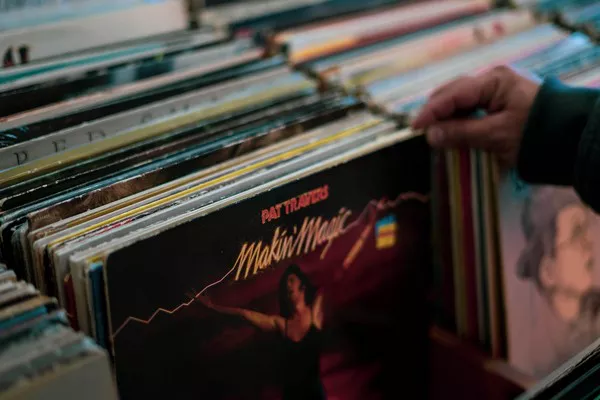Music is an integral part of human culture and society, serving as a universal language that transcends boundaries and connects people on a profound emotional level. Throughout history, music has played a pivotal role in shaping societies, influencing individual and collective emotions, and fostering a sense of belonging. This article explores the multifaceted significance of music, addressing the question: “Why is music important to society?”
1. Cultural Identity and Heritage Preservation
Music serves as a vital vehicle for the preservation of cultural identity and heritage. Across the globe, diverse communities use music to pass down traditions, stories, and values from one generation to the next. These musical traditions serve as a living testament to the rich tapestry of human history, allowing societies to maintain a strong connection to their roots. In this way, music becomes a vessel for the transmission of cultural knowledge, ensuring that customs, languages, and historical narratives are not forgotten but celebrated and upheld.
In many instances, music becomes an emblem of national identity. National anthems and patriotic songs, for example, evoke strong emotions and foster a sense of unity among citizens. These musical compositions serve as a sonic representation of a nation’s history and aspirations, playing a pivotal role in shaping the collective consciousness. The importance of music in preserving cultural heritage and fostering national identity cannot be overstated.
2. Emotional Expression and Catharsis
One of the most compelling reasons why music is important to society is its capacity for emotional expression and catharsis. Music has a unique ability to convey complex emotions, whether it be joy, sadness, love, or anger, often in ways that words alone cannot achieve. For individuals, music serves as a means of expressing their innermost feelings and experiences. In times of happiness, a celebratory tune can amplify the elation, while a melancholic melody can provide solace during periods of sorrow.
On a broader societal level, music functions as a collective outlet for emotional expression. In times of triumph or tragedy, music provides a channel through which communities can come together to celebrate achievements or mourn losses. For example, after a natural disaster or during times of national crisis, music can serve as a unifying force, allowing people to process their emotions and find solace in the shared experience of music.
3. Social Cohesion and Community Building
Music has an inherent capacity to bring people together and foster social cohesion. Whether it’s a concert, a music festival, or a simple gathering around a campfire, music has the power to create a sense of community and shared experience. In these communal settings, people from diverse backgrounds and walks of life can come together, united by their love for a particular genre or artist.
Furthermore, music often serves as a backdrop for social rituals and ceremonies. Weddings, graduations, religious services, and even funerals are imbued with meaning and emotion through carefully chosen musical accompaniments. The shared experience of music in these settings strengthens social bonds, creating a sense of belonging and connection among participants. In essence, music acts as a glue that binds communities together, promoting a sense of unity and belonging.
4. Cognitive Development and Learning
Beyond its emotional and social significance, music also plays a crucial role in cognitive development and learning, making it an essential component of education. Research has shown that exposure to music from a young age can have a positive impact on cognitive skills such as memory, attention, and problem-solving. Learning to play a musical instrument, for instance, enhances fine motor skills and encourages discipline and perseverance.
Music education also contributes to a well-rounded education by fostering creativity and critical thinking. It encourages students to think outside the box, experiment with different sounds, and interpret complex compositions. In addition, the study of music history provides valuable insights into the cultural, historical, and societal contexts of different periods, contributing to a more holistic understanding of human civilization.
5. Therapeutic Benefits and Healing
Another compelling reason why music is important to society lies in its therapeutic benefits and healing properties. Music therapy is a well-established field that uses music as a tool for physical, emotional, and psychological healing. Whether it’s helping individuals cope with anxiety, managing pain, or improving cognitive function in patients with Alzheimer’s disease, music therapy has a wide range of applications in healthcare and rehabilitation.
Moreover, music can have a profound impact on mental health and emotional well-being. Listening to music that resonates with one’s emotions can provide comfort and solace during difficult times. It can also serve as a form of self-expression and catharsis, allowing individuals to process and release pent-up emotions. Music therapy and the healing power of music contribute significantly to society’s overall well-being and the quality of life for many individuals.
6. Political and Social Change
Throughout history, music has been a catalyst for political and social change. Protest songs, anthems of resistance, and calls for justice have played a pivotal role in movements for civil rights, peace, and social justice. Artists like Bob Dylan, Nina Simone, and John Lennon used their music to inspire change and challenge the status quo. These songs served as anthems for movements and became rallying cries for social and political transformation.
Music can convey powerful messages that resonate with people on a deep level, motivating them to take action and advocate for change. It has the ability to raise awareness, spark dialogue, and mobilize communities toward a common cause. In this way, music becomes a potent force for societal progress and a means of amplifying the voices of those who seek to create a better world.
7. Economic and Cultural Industry
Beyond its cultural and social significance, music is a significant economic driver. The music industry encompasses a wide range of professions, including musicians, composers, producers, technicians, marketers, and more. It generates billions of dollars in revenue globally and provides employment opportunities for countless individuals.
Furthermore, music tourism contributes to the economy of many regions. Cities and towns with vibrant music scenes often attract tourists and music enthusiasts from around the world. Music festivals, concerts, and live performances not only stimulate local economies but also promote cultural exchange and tourism.
In addition to its economic impact, the music industry contributes to the global exchange of culture. Artists from different countries collaborate, fuse musical styles, and introduce audiences to new sounds and perspectives. This cross-cultural exchange enriches society by broadening cultural horizons and fostering understanding among diverse communities.
8. Creativity and Innovation
Music is a hotbed of creativity and innovation, pushing the boundaries of what is possible in terms of sound, composition, and technology. Musicians and composers constantly experiment with new techniques, instruments, and genres, pushing the boundaries of musical expression. This spirit of innovation not only enriches the world of music but also spills over into other creative fields, inspiring artists, designers, and technologists to think outside the box.
Furthermore, music has played a significant role in the development of technology itself. From the invention of the phonograph to the rise of digital audio production software, music has driven technological advancements that have had far-reaching impacts on various industries. The creativity and innovation fostered by music contribute to the overall progress of society.
9. Entertainment and Leisure
In the hustle and bustle of modern life, music provides a source of entertainment and leisure that offers relaxation and escape from daily stressors. Whether it’s attending a live concert, dancing to a favorite tune, or simply listening to music while commuting, people turn to music for enjoyment and leisure.
Music also plays a central role in the entertainment industry, including film, television, and gaming. It enhances storytelling, sets the mood, and heightens emotional impact. Soundtracks and scores composed for movies, for instance, are often integral to the overall cinematic experience, demonstrating how music contributes to the broader realm of entertainment and popular culture.
10. Universal Language and Global Connectivity
Perhaps one of the most remarkable aspects of music’s importance to society is its function as a universal language that transcends cultural and linguistic barriers. Regardless of one’s native language, people from all corners of the world can appreciate and connect through music. It is a testament to the power of human creativity and expression to bridge divides and foster global connectivity.
In an increasingly interconnected world, music serves as a powerful tool for cultural exchange and diplomacy. Artists from different countries collaborate, fuse musical traditions, and tour internationally, promoting cross-cultural understanding and fostering diplomatic relations. Music festivals and events that feature artists from diverse backgrounds provide a platform for cultural exchange and celebration of global diversity.
Conclusion
In conclusion, music holds a unique and multifaceted importance in society that cannot be understated. It serves as a vehicle for cultural preservation, emotional expression, and catharsis. Music fosters social cohesion, strengthens communities, and contributes to cognitive development and learning. Its therapeutic benefits promote healing and well-being, while its capacity for political and social change inspires progress and activism. The economic and cultural industry of music drives employment and tourism, and its role in stimulating creativity and innovation has a broad-reaching impact on society.
Moreover, music provides entertainment and leisure, enriches storytelling in the entertainment industry, and acts as a universal language that promotes global connectivity and understanding. As a timeless and universal art form, music transcends boundaries and remains an integral part of the human experience, continuing to shape and enrich societies across the world. The question “Why is music important to society?” finds its answer in the myriad ways music touches and enhances our lives, both individually and collectively.

























